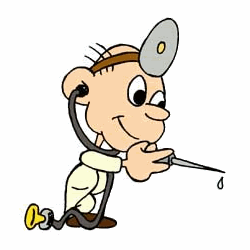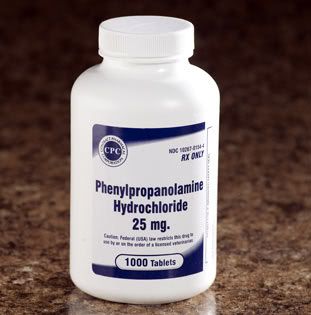Getting the flu shot is the single best way to protect against the flu. It is important for a pregnant woman to receive both the 2009 H1N1 flu shot and the seasonal flu shot. A pregnant woman who gets any type of flu has a greater chance for serious health problems. Compared with people in general who get 2009 H1N1 flu (formerly called “swine flu”), pregnant women with 2009 H1N1 flu are more likely to be admitted to hospitals. Pregnant women are also more likely to have serious illness and death from 2009 H1N1 flu. When a pregnant woman gets a flu shot, it can protect both her and her baby. Research has found that pregnant women who had a flu shot get sick less often with the flu than do pregnant women who did not get a flu shot. Babies born to mothers who had a flu shot in pregnancy also get sick with flu less often than do babies whose mothers did not get a flu shot.
Will the seasonal flu shot also protect against the 2009 H1N1 flu?
Seasonal flu and 2009 H1N1 flu are caused by different viruses. The seasonal flu vaccine will not protect against the 2009 H1N1 flu. Also, the 2009 H1N1 flu vaccine will not protect against seasonal flu.
Are there flu vaccines that pregnant women should not get?
The seasonal and 2009 H1N1 flu vaccines can be given by shot or by nasal spray. Pregnant women should get the "flu shot"—a vaccine made with killed flu virus. This one is given with a needle, usually in the arm. The other type of flu vaccine—a nasal spray—is not approved for pregnant women. This vaccine is made with live, weakened flu virus. Nasal spray flu vaccine should be used only in healthy people 2-49 years of age who are not pregnant. The nasal spray vaccine is safe for women after they have delivered, even if they are nursing.
Can the seasonal flu shot and the 2009 H1N1 flu shot be given at the same time?
Seasonal and 2009 H1N1 flu shots can be given on the same day but should be given at different sites (e.g., one shot in the left arm and the other shot in the right arm). If a woman is getting her vaccines after delivery, she can get the nasal spray flu vaccine. However, she should not get the seasonal and 2009 H1N1 nasal spays on the same day; they should be given 4 weeks apart.
Is the 2009 H1N1 flu shot safe for pregnant women?
The seasonal flu shot has been given to millions of pregnant women over many years. Flu shots have not been shown to cause harm to pregnant women or their babies. The 2009 H1N1 flu vaccine is being made in the same way and at the same places where the seasonal flu vaccine is made.
What studies have been done on the 2009 H1N1 flu shots and have any been done in pregnant women?
Studies to test the 2009 H1N1 flu shots in healthy children and adults and pregnant women are being done now. Results are available from some of the studies done in non-pregnant adults and children. These results show that the immune system responded well to the 2009 H1N1 vaccine, and the safety results were very similar to those seen in studies of seasonal flu vaccine. These studies are being conducted by the National Institute of Allergy and Infectious Diseases (NIAID) and the vaccine manufacturers. More information can be found at http://www3.niaid.nih.gov/news/QA/vteuH1N1qa.htmExternal Web Site Icon.
Does the 2009 H1N1 flu shot have mercury in it?
There is no evidence that thimerosal (a mercury preservative in vaccine that comes in multi-dose vials) is harmful to a pregnant woman or a fetus. However, because some women are concerned about thimerosal during pregnancy, vaccine companies are making preservative-free seasonal flu vaccine and 2009 H1N1 flu vaccine in single-dose syringes for pregnant women and small children. CDC advises pregnant women to get flu shots either with or without thimerosal.
Does the 2009 H1N1 flu shot have an adjuvant or squalene in it?
Adjuvants are agents that are sometimes added to a vaccine to make it more effective. There are no adjuvants (such as squalene) in either the 2009 H1N1 or seasonal flu shot used in the United States.
Can the 2009 H1N1 flu shot be given at any time during pregnancy?
Both seasonal flu shots and 2009 H1N1 flu shots are recommended for pregnant women at any time during pregnancy.
How many 2009 H1N1 flu shots will a pregnant woman need to get?
The U.S. Food and Drug Administration (FDA) has approved the use of one shot for full protection for persons 10 years and older. Therefore, a pregnant woman is recommended to get one dose of the 2009 H1N1 vaccine.
Should the 2009 H1N1 flu shot be given to a pregnant woman who had flu between April 2009 and now? Do I need a test to know if I need the shot or not?
A pregnant woman who had a flu-like illness at any time in the past should still get the 2009 H1N1 shot because she cannot assume that the illness she had was caused by the 2009 H1N1 virus. Pregnant women who had flu symptoms in the past do not need to be tested now, but should get the vaccine.
What are the possible side effects of the 2009 H1N1 flu shots?
The side effects from 2009 H1N1 flu shots are expected to be like those from seasonal flu shots. The most common side effects after flu shots are mild, such as being sore and tender and/or red and swollen where the shot was given. Some people might have headache, muscle aches, fever, and nausea or feel tired. If these problems happen, they usually begin soon after the shot and may last as long as 1-2 days. Some people may faint after getting any shot. Sometimes, flu shots can cause serious problems like severe allergic reactions. But, life-threatening allergic reactions to vaccines are very rare. A person who has a severe (life-threatening) allergy to eggs or to anything else in the vaccine should not get the shot, even if she is pregnant. Pregnant women should tell the person giving the shots if they have any severe allergies or if they have ever had a severe allergic reaction following a flu shot.
Is the 2009 H1N1 flu shot expected to be associated with Guillain-Barre Syndrome (GBS)?
In 1976, an earlier type of swine flu vaccine was associated with cases of a severe paralytic illness called Guillain-Barre Syndrome (GBS) at a rate of approximately 1 case of GBS per 100,000 persons vaccinated. Some studies done since 1976 have shown a small risk of GBS in persons who received the seasonal influenza vaccine. This risk is estimated to be no more than 1 case of GBS per 1 million persons vaccinated. Other studies have shown no increase in risk of GBS. Pregnant women should tell the person giving the shots if they have ever had GBS.
Can family members or other close contacts of a pregnant woman receive the nasal spray vaccine?
Pregnant women should not receive nasal spray for the seasonal or 2009 H1N1 flu vaccine, but it is okay for a pregnant woman to be around a family member or another close contact who has received nasal spray flu vaccine. The nasal spray vaccine can be used in healthy people 2-49 years of age who are not pregnant and in women after they deliver, even if they are nursing.
Can a pregnant healthcare provider give the live nasal spray flu vaccine?
Yes. No special precautions are needed. Nurses and doctors should wash their hands or use an alcohol-based hand rub before and after giving the vaccine.
What if a pregnant woman gets the live nasal spray flu vaccine instead of the flu shot?
The nasal spray flu vaccine has not been approved for pregnant women. It differs from the flu shot because it is made with live, weakened virus. However, sometimes a pregnant woman might get the nasal spray flu vaccine—for example, before she knew she was pregnant. If this happened, she would not be expected to have any additional problems. The weakened, live flu virus has never been shown to be passed to the unborn baby. However, if a woman does get the nasal spray vaccine while she is pregnant, she should talk to her healthcare provider.
If a pregnant woman delivers her baby before receiving her seasonal flu shot or her 2009 H1N1 flu shot, should she still receive them?
Yes. Besides protecting her from infection, the shot may also help protect her infant. Flu shots are only given to infants 6 months of age and older. Everyone who lives with or gives care to an infant less than 6 months of age should get both the seasonal flu and 2009 H1N1 vaccines. A woman can get either the shots or the nasal spray after she delivers.
Can a breastfeeding mother receive the flu shot or the nasal spray?
Yes. Both seasonal and 2009 H1N1 flu vaccines should be given to breastfeeding mothers and breastfeeding women can receive either the shot or the nasal spray form of the vaccine. Breastfeeding is fully compatible with flu vaccination, and preventing the flu in mothers can reduce the chance that the infant will get the flu. Also, by breastfeeding, mothers can pass on to the infant the antibodies that their bodies make in response to the flu shots, which can reduce the infant’s chances of getting sick with the flu. This is especially important for infants less than 6 months old, who have no other way of receiving vaccine antibodies, since they are too young to be vaccinated.
Source: CDC





